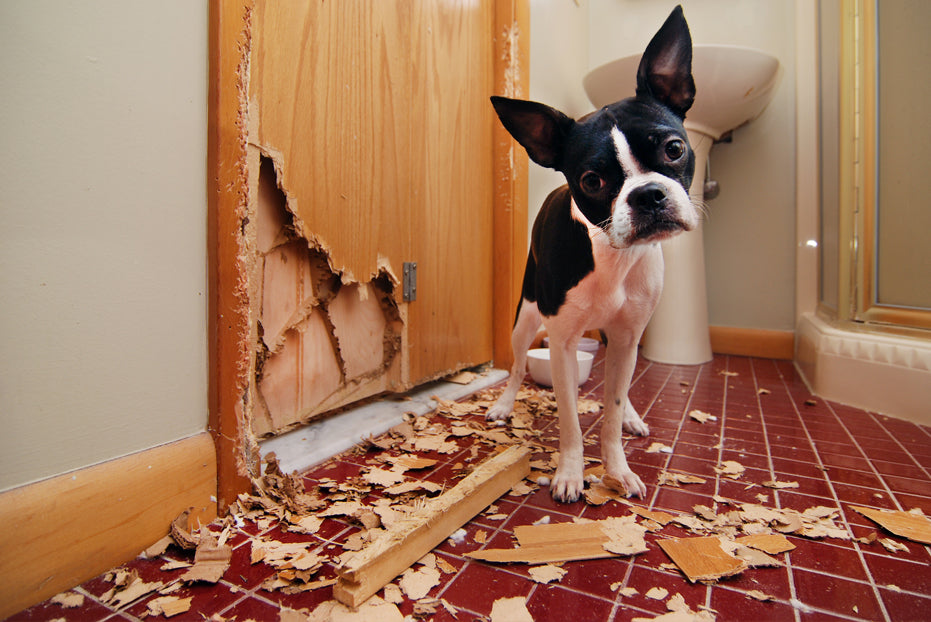
4 Ways to Ease Your Dog's Separation Anxiety
Do you frequently come home to scattered trash, pillow massacres, or “unwanted presents” in the house? Your pet could be suffering from separation anxiety.
What is Separation Anxiety?
Separation anxiety is a condition in which dogs suffer severe mental or emotional distress when separated from their owner or primary attachment figure.
Common Signs of Separation Anxiety:
- Urinating and defecating in the house (if they don’t normally)
- Chewing, digging, and other destructive behavior (especially to windows and doors)
- Escaping / running away
Some of these signs can be due to other behavior problems, so check with your vet if you are unsure if your dog has separation anxiety.
Although you could opt to never part from your dog, that might be a little tough to sell to your boss. Instead, we’ve got a few tips and recommendations that can help reduce your dog’s separation anxiety when you’re gone. As always, check with your vet first to make sure your dog is free of any underlying medical conditions.
1 – Exercise Your Dog Before You Leave
- A tired dog will have less energy to get into trouble, and may even just nap while you are gone
- Wrap up your exercise session at least 30 minutes before you leave so they have time to calm down
2 – Try to Take the Emotion Out Of Leaving and Arriving
- Often times, dogs emulate your feelings, so if you make a big deal about leaving, they may also think it is a big deal
- If your dog jumps on you when you get home, try to ignore them by turning your back
- Once they have calmed down, greet them calmly
3-Give Your Dog a Special Treat Before You Leave
- This can help to keep them occupied, and not as aware that you aren’t there
- You can even try special toys that have treats inside, so your dog has to work a little to get the treat out.
4 – Try a Calming ThunderShirt

- A ThunderShirt is a calming wrap that feels like a hug to your pup, helping them to feel calm and safe while you are gone
- ThunderShirt has helped over a million dogs with anxiety
If you return home to find that your dog has destroyed anything or eliminated in the house, DO NOT yell at them or punish them in any way. This only increases their anxiety and will make the problem behavior worse.
If all of the above approaches fail to adequately address your dog’s separation anxiety, be sure to speak with your veterinarian or seek out assistance from a board certified Veterinary Behaviorist. You can find one at www.dacvb.org
 Skip to content
Skip to content
